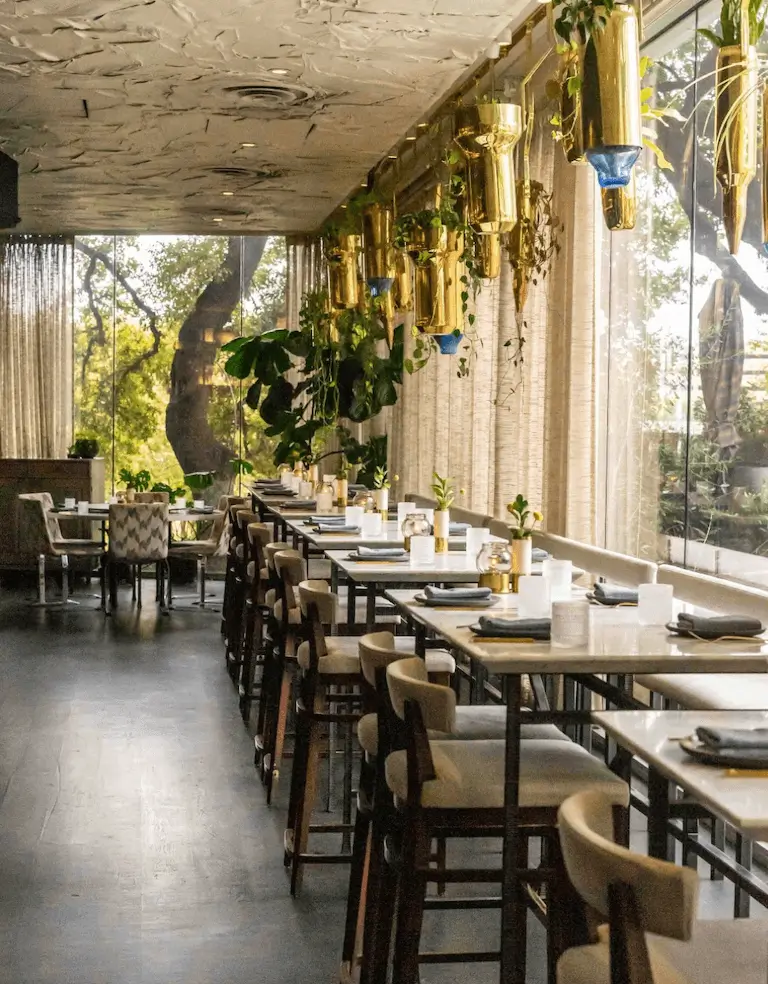Part of the fun of working in the food industry is the feeling that you’re part of something special. Whether your dining room is full of folks who have traveled near or far to experience your food, or regulars who show up on a daily basis, every restaurant is unique—and at times can feel like its own little ecosystem.
That said, despite deep traditions in hospitality, a restaurant isn’t excluded from the changing demands of a modern world. It’s essential to keep up with that evolution, whether that means understanding what makes an inclusive workplace, staying up to date on environmental needs and sustainability practices, or ensuring that the guest experience measures up to present-day standards.
At times, those combined expectations can seem overwhelming, and especially when you’re starting out and not setting the rules, it may feel as if your scope of influence is limited. But the truth is that every individual holds real power and can take steps that make a major difference—no matter your place, position, or station.
Here are three ways you can make a difference.
Inclusivity: Help Create a Supportive Culture for Everyone
At the outset of your career, you aren’t likely to be the one doing the hiring or creating culture. It’s the employer’s responsibility to cultivate a dynamic team composed of different kinds of people. Your work, on the other hand, is to acclimate to what already exists—but that doesn’t mean you can’t make an impact that extends beyond the dish.
When it comes to promoting inclusivity, a major part of your role is fostering the trust that’s so critical to an inclusive environment—not to mention a productive, efficient, and generative one. Compassion and respect are the building blocks of that trust, so it’s important to understand that everyone is coming from different levels of experience, different opportunities, and different walks of life. When you look around at your colleagues, remember that although you all wound up in the same place, not everyone had the same opportunities or paths to get there. You don’t need to know every backstory, but you do have to be patient and aware that everyone is on their own journey, and help create a positive culture that supports each one, no matter who suits up next to you.
When there’s trust, there’s space for communication, and that includes an open exchange of the constructive feedback fundamental for a restaurant’s evolution. Remember to be intentional about critiques you give. You don’t have to be purely positive all the time, but set aside time to have moments of reflection and consider how you communicate. Hone in on what needs improvement, and be respectful in how and when you deliver it.
When it comes to receiving feedback, be open to listening and don’t shut down. If presented respectfully in return, and with the clear intention of strengthening the entire team so you can reach your collective goals, it’s constructive—and it’s important. If you help create an environment in which you and your coworkers can share feedback and hold one another accountable, you can build upon that trust, encouraging and empowering one another to improve. And while you’re at it, don’t hesitate to shout out and celebrate things people do well.
Also keep in mind that everyone around you is there because at some point, they chose to be in this one particular place—and that’s exciting. Even if it feels like there are significant differences between you, this simple fact gives you immediate common ground, and makes it all the easier to find important points of connection.
Inclusivity is about respecting others, understanding different backgrounds, and contributing to a supportive environment. These are some powerful ways to make an impact even if you’re not at the top, but if someday you have the chance to be in a hiring position, remember to be the kind of person you want to attract. Embody your values and an inclusive philosophy, and chances are that those with similar philosophies will gravitate toward you.
Environmental Initiatives: Small Decisions Count
As food service professionals, decisions concerning the natural environment and sustainability efforts are among the most impactful we make everyday. Those choices are critical for the health of our planet, and the bonus is that they may also wind up being the best business practices, too. Minimizing food waste is good for the bottom line, for example, and being engaged can also deepen relationships with the farmers and producers that not only provide for our kitchens, but are the lifeblood of our industry and our world.
Sometimes what we hear or read about the environment feels overwhelming, though, and especially when you’re starting out, you are once again limited in what you can decide. That said, you can contribute even if you’re not in a position to make purchasing decisions or enact policies.
When you have the choice between taking food scraps and putting them in the garbage or trying to make something from them, choose to make something from them. Tell your team, “You know, I saw this really cool recipe for what you can do with potato skins.” If you notice you’re not going to be able to use something in a timely fashion, suggest a donation or put it on a family meal menu. There are ways to repurpose everything from ingredients to paper goods to packaging (we’ve found egg cartons are an ideal fire starter, and butter paper is perfect for greasing a pan). With curiosity comes inventiveness, and those are call-outs you can make whether you’re a team leader or an hourly cook.
Bringing ideas to the table shows initiative, too, and demonstrating an awareness of how your actions impact the world reflects a sense of responsibility. These are meaningful qualities that may set an inspiring example for those around you, and can make an impression on employers as well. If you keep in mind that seemingly small actions have the potential to make a big difference, you can feel less overwhelmed, and more empowered.
Provide a Welcoming Guest Experience
Beyond the kitchen, one of the constant challenges in the food industry is staying relevant with diners, too. That doesn’t necessarily require that you chase trends, but it does mean providing hospitality that’s in harmony with the ethos and philosophy of your restaurant, as well as the community you serve.

I’m usually in the kitchen when I’m at the restaurant but I like to run food as a way to interact with guests and touch all aspects of service.
Just like inclusivity and sustainability, this comes down to awareness, and creating a positive ecosystem. By working to develop a welcoming environment in which people feel valued and are satisfied with your restaurant’s business and culinary practices, you help generate a powerful sense of pride among the team. That enthusiasm not only translates to the food, but ripples from the kitchen to the servers and into the dining room.

A sense of pleasantness helps create meaningful experiences, whether or not you ever interact with guests. Photo credit: Jackie Gilles.
Of course, there will always be times when things don’t go perfectly or you simply can’t satisfy certain diners. But even on an off night, if you’ve done your best for your team, made informed decisions for the world around you, and have confidence that there’s an open lane for constructive conversations, you can hang up your apron knowing you have the tools you need to grow from the challenges—and that makes a profound difference at every level.
Stay Committed to Authenticity, Compassion, and Connection
Overall, the key to meeting the changing demands of a modern world is to stay plugged in and never lose sight of the fact that you’re a part of a community. This means the kitchen team around you, but it also extends to the servers on the floor, the folks behind the scenes who clean the space or wash the dishes, off premise to the people farming and producing the food that will inspire you and be plated for your guests—and beyond.
At the end of the day, the only thing you can truly control are your own actions and responses. Staying engaged, evolving, and contributing as you move through your career requires that you as an individual stay open to learning and growth. Have patience, practice being a good listener, and allow yourself to go through the motions as you progress, honing your own individual voice, standards, and philosophy along the way.
Reflect on what works and what doesn’t, knowing that something may not be “wrong” on paper, but that it may not be the right thing for you. Find ways to strike a balance between efficient business practices and actionable steps that align with your personal values, even if they seem small in the moment. Rely on the pillars and traditions of the hospitality industry and what makes it so special in the first place—authenticity, compassion, connection—and remember that no matter what changes in your restaurant or out in the world, a commitment to community, curiosity, awareness, and respect for others will always serve you.


